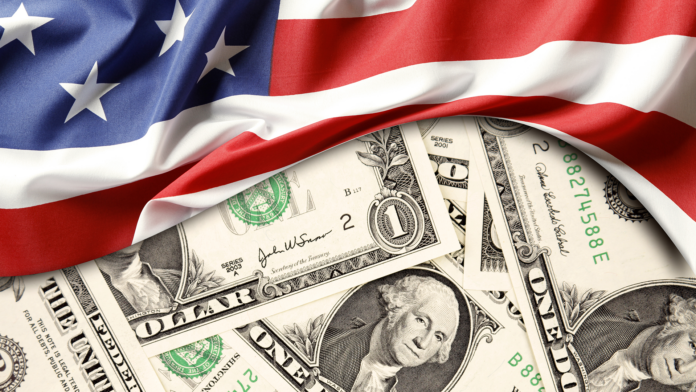The dollar was lower on Monday after US President Joe Biden’s decision not to seek re-election, while the euro gained despite its not-so-strong tone after the European Central Bank’s meeting the previous week. Here’s everything you need to know about the major market currencies.
Dollar loses ground amid political uncertainty
The dollar lost ground after it was announced over the weekend that US President Joe Biden will not seek re-election, backing Vice President Kamala Harris as his possible replacement in the US presidential race.
Some investors indicate that they are likely to focus their attention on how Kamala Harris will compare against Donald Trump in the opinion polls, should she be chosen as the presidential nominee at the Democratic National Convention scheduled for August 19-22.
The dollar had received a boost as the likelihood of a Trump presidency increased as a result of Biden’s disastrous debate performance last month and questions about his age and health.
The most relevant release this week will come on Friday, with the June personal consumption expenditures data, which may test market estimates that the Fed is almost certain to cut interest rates by September.
Economists expect the PCE price index to have risen about 0.1% for the second month in a row, which would put three-month annual core inflation at the slowest pace this year, below the Fed’s 2% target.
Euro rebounds on ECB decision
The EUR/USD rose 0.2% to 1.0893, recovering from weakness following the European Central Bank’s decision to hold interest rates at its meeting last week.
Analysts noted that, at last week’s policy meeting, the ECB did not provide a specific response to the strong estimate of a rate cut in September, which remains a strong base case.
Analysts also say that this week’s Eurozone business confidence data, due out on Wednesday and Thursday, will serve to shape the view that policy remains on a tightening path and could lead to a small decline in the single currency.
Markets expect about two rate cuts by the ECB in the remainder of the year.
GBP/USD rose 0.1% to 1.2931, after breaking above the 1.30 level for the first time this year the previous week, on the back of the Labour Party’s decisive election victory, which ended 14 years of Conservative rule, at times marked by chaos.
Equally, some are undoubtedly making the case that this is a removal of the Brexit risk premium on sterling, supported by new Prime Minister Keir Starmer’s desire to make compromises across Europe.
Yuan falls on PBOC rate cut
USD/CNY rose about 0.1% to 7.2727, close to levels last seen in November.
The yuan’s weakness came after the People’s Bank of China unexpectedly cut its benchmark prime lending rate to further loosen monetary policy and help its economy.
The cut comes at a time when China is struggling with a slowing economic recovery, which has increased pressure on the yuan.
The yuan’s recent weakness also came amid concerns about a Trump presidency, as he has maintained negative rhetoric toward Beijing.



